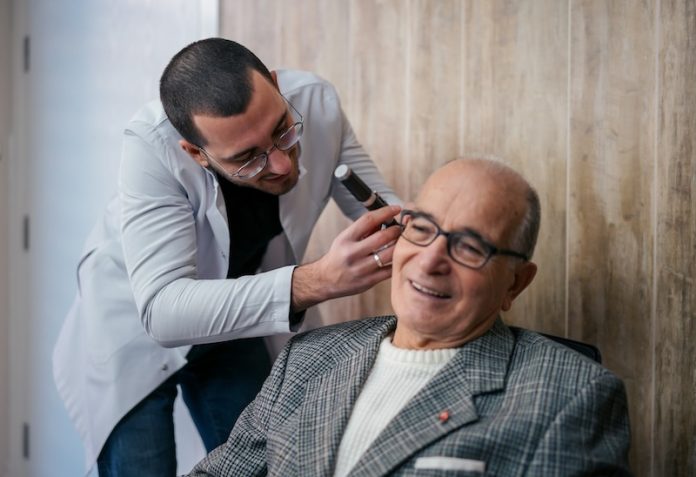
Tinnitus is the name for hearing sounds like ringing, buzzing, hissing, or whistling when no actual sound is present. It’s a common issue that affects millions of people around the world, especially older adults. These sounds might be soft or loud, and they can be constant or come and go.
Although tinnitus is not a disease itself, it’s often a sign that something is going wrong with the hearing system. So what causes it? Let’s take a closer look in simple terms.
One of the most common causes of tinnitus is exposure to loud noise. If you work in loud environments like construction sites or factories, or if you regularly attend loud concerts or use headphones at high volumes, your ears can be damaged over time. Inside your inner ear are tiny hair cells that help you hear by sending sound signals to the brain.
When these cells are damaged, they can send the wrong signals, which your brain interprets as sound—even when there is none. This is one of the ways tinnitus starts. Using earplugs or turning the volume down can help protect your ears and reduce the risk.
Aging is another major cause of tinnitus. As we grow older, parts of our hearing system, especially the inner ear, naturally wear down. This can cause the same kind of damage to the tiny hair cells that happens with loud noise exposure. That’s why tinnitus is so common among older people.
Sometimes, health conditions also play a role. Problems with blood flow, like high blood pressure or blocked arteries, can affect how well your ears function. The ears need good blood circulation, and when this is reduced, it can lead to hearing issues like tinnitus.
Other conditions such as diabetes, thyroid disorders, and multiple sclerosis can also increase the chances of getting tinnitus. Managing these conditions—such as keeping blood sugar levels under control for people with diabetes—may help ease the symptoms.
Certain medications can cause tinnitus too. High doses of aspirin, some antibiotics, anti-inflammatory drugs, and antidepressants have been linked to ringing in the ears. The longer or more often you take these medications, the higher the risk may be.
If you notice tinnitus after starting a new medicine, it’s a good idea to talk to your doctor. They might suggest a different option that doesn’t affect your hearing.
A simple cause of tinnitus that’s often overlooked is earwax buildup. When too much earwax collects in the ear, it can block sound and irritate the eardrum. This can lead to both hearing loss and tinnitus. Regular ear cleaning, done safely, can help prevent this.
Stress and anxiety can make tinnitus feel worse. While they don’t cause the ringing, they can make it more noticeable and harder to deal with. Learning to manage stress—through deep breathing, relaxation exercises, meditation, or talking to a counselor—can often make tinnitus easier to handle.
In some cases, doctors can’t find a clear reason for tinnitus. Even so, researchers are making progress in understanding how the brain handles sound, and this might lead to better treatments in the future.
Although there is currently no cure, there are many ways to manage tinnitus and reduce how much it affects your daily life. Protecting your ears from loud noises, staying on top of your health conditions, being careful with medications, keeping your ears clean, and reducing stress are all simple steps that can help.
Tinnitus may be frustrating, but understanding what causes it—and what you can do about it—can make a big difference. With the right approach, many people find they can manage their symptoms and improve their quality of life.
If you care about hearing health, please read studies about antibiotic drug that can lead to hearing loss, and whether you should get an hearing aid or see a specialist.
For more health information, please read studies about how the Mediterranean diet could protect your brain health, and these antioxidants could help reduce dementia risk.
Copyright © 2025 Knowridge Science Report. All rights reserved.



